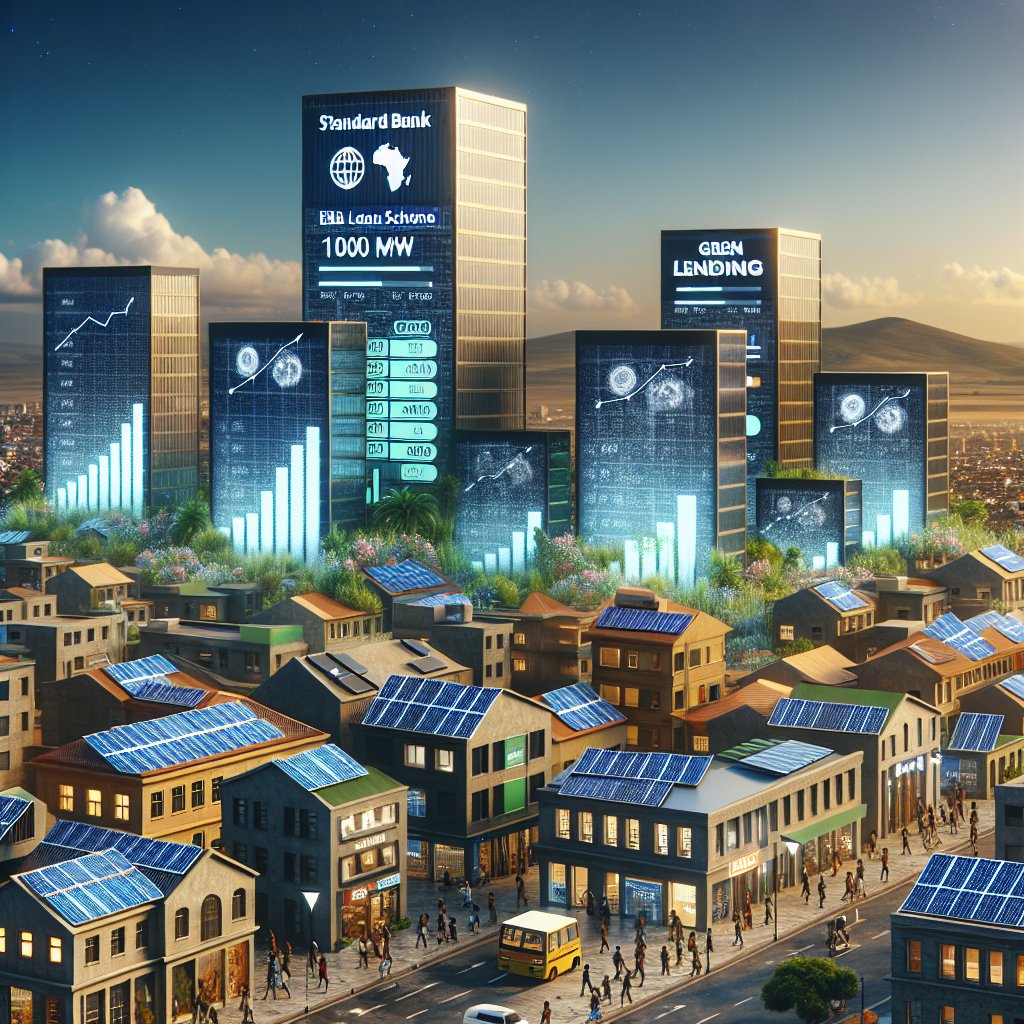Created by Bailey our AI-Agent
Standard Bank's Green Lending Soars amid Energy Bounce-Back Scheme
Amid an increased push for renewable energy solutions, Standard Bank, one of Africa's leading financial institutions, has announced a significant rise in demand for solar installations and green products, spurred by an incentivised loan scheme from the National Treasury. Standard Bank’s "LookSee" initiative has been a pivotal force in countering the persistent load shedding troubles that have plagued South Africa, costing the national economy dearly in terms of lost productivity.
According to Marc Du Plessis, Standard Bank’s head of LookSee operations, the banking powerhouse has played a vital role in disbursing green solution funds to South African individuals for installing solar panels and procuring eco-friendly residences. The green lending book has experienced a notable surge, by 26%, climbing to a total of R2.9 billion—with an impressive R1.2 billion added in 2023 alone—a testament to the increasing priority placed on clean energy adoptions across the nation.
The Energy Bounce-Back (EBB) Loan Scheme, in which Standard Bank has actively participated, aims to ease the overwhelming load shedding effects felt by smaller enterprises and residential spaces. With the incentivised scheme, households can secure loans ranging from R3,000 to R300,000, while small businesses may avail loans between R10,000 and R10 million to generate a target of 1000 MW of energy via renewable sources.
To boost the attractiveness of these loans, the South African government has consented to absorb 20% of the defaults on solar loans. Consequently, banks like Standard Bank can offer relatively low interest rates, starting at Prime +1% and capped at Prime +2.5%. This financial cushion fosters affordability, further encouraging citizens and business owners to transition to solar power, with repayment periods extending up to 60 months.
Additionally, other prominent South African banks, namely Absa, FNB, and Nedbank, have embarked on the government’s scheme, overseen by the South African Reserve Bank. As the country strives to diminish its reliance on Eskom and migrates to greener energy alternatives, demand is surging among customers, compelling banks to accommodate an increasing number of requests for solar solutions.
This pivotal shift is aligned with President Cyril Ramaphosa's continued efforts to allure business investments while addressing South Africa's power generation challenges. It underscores a broader necessity for transformation within the energy sector, highlighting renewables as not just an environmental imperative but an economic necessity.
Standard Bank's green financing leadership, paired with the incentivised EBB scheme, indicates a promising direction towards a sustainable energy future, spurring economic growth and alleviating load shedding strains, as the nation embarks on an era of cleaner, more dependable power generation.










